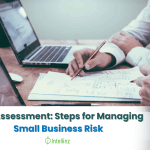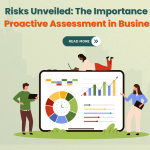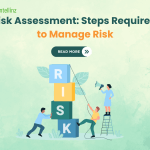Not every business starts from scratch. Buying an existing company allows you to earn money right away by using an established brand and operational infrastructure.
Hence, buyers seek to minimize their risk and maximize the value of their investments. As a result, they examine different essential features in an organization to determine risk.
In this article, we will discuss and understand what typical information buyers need to know before making a purchase.
Understand the Company Profile and its Industry
Seasoned buyers always research and comprehend the company’s business profile and industry in order to understand what they are dealing with.
Understanding these concepts will provide a better understanding of how they can manage and scale the company.
Furthermore, buyers should consider consumer satisfaction as well. Understanding how customers use and perceive the business can assist in putting any sales estimates into a more realistic context and provide a better understanding of where the business stands.
Consider the Company’s Reputation
Reputation is everything in business. Search review sites and media channels for any red flags or negative information that could harm the company’s reputation and cost money. Even a previous history of a cyber-attack can have an influence on a company’s reputation, especially if consumer data is compromised.
Conducting Due Diligence
Buyers should conduct due diligence, which consists of identifying and managing any potential risks associated with the purchase of the business.
Due diligence procedures include:
- Utilizing resources and computer programs to acquire and examine documentation alongside accountants and advisers
- Storing and distributing data via email and file-sharing systems
- Establishing a ‘data room’ to which the buyer and seller, as well as their advisory team, will have access
- Drafting requests for information (RFIs)—RFIs are official documents used to seek information throughout the due diligence process, allowing the buyer to ask the seller for particular facts to aid in discussions and decision-making.
Due diligence can assist you in making informed decisions about the business transaction, the appropriate price to pay, and how it should be handled.
Is the Business Scalable?
Strategic and financial buyers are looking for opportunities for growth and expansion. Answering the following questions can help you assess more accurately:
- Is your company mostly process-driven or haphazard?
- Could operations be launched in a new market relatively easily?
- Can its products be manufactured on a larger scale if demand rises?
It is vital to note that scalability varies by industry and company type. Some firms are more naturally suited to scaling than others.
Confirm and Verify Business Licenses and Permits
This is sometimes overlooked, yet it is a vital element of due diligence. If business licenses are not in place or are not kept up to yet, the business’s operations may be disrupted after the transaction is completed.
Check that all required business license filings are current and that the company can continue to function without interruption or incurring any fines from federal, state, or municipal officials. You may need to obtain licenses if they are not in order.
In Conclusion
Purchasing an existing firm entails numerous steps. So, don’t rush and instead take the time to study and appraise your budget before making the purchase or acquisition.
Consider getting professional help from an accountant, lawyer, and a company valuation consultant to help you appraise the business and decrease risk.
And, once you have it, you will be able to revive the organization with new ideas and leadership






